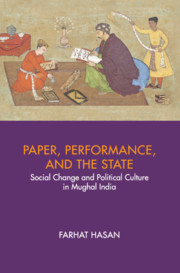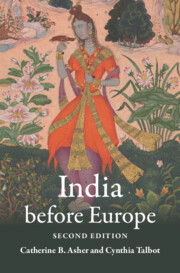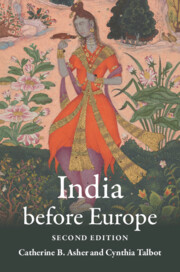Paper, Performance, and the State
This book explores the changing socio–cultural world in early modern South Asia, and locates the agency of the Mughal state therein. The development of literacy and new forms of engagement between literacy and performance prompted the opening up of new spaces of social communication, and led to the development of a performative (and somatic) public sphere in South Asia. The work highlights the significance of legal spaces, along with the markets and coffeehouses, in shaping the emergent public sphere. While defending the case for legal pluralism, it argues that the Mughal state endured and enhanced the diversity in the legal order. Focusing on the socially embedded attributes of the state, it looks at how the state's relations with the local powers impinged on, and reproduced community identities, identity conflicts, legal pluralism, property relations, and different forms of social communication.
- Uses a comparative and cross-cultural approach to study the political processes in early modern South Asia
- Draws on insights from anthropology, literary theory, sociology, and political thought in substantiating the centrals arguments
- Uses lucid prose in deconstructing complex historical concepts thus making it an interesting read for researchers and the general public alike
Product details
April 2022Hardback
9781316516812
168 pages
236 × 157 × 16 mm
0.36kg
Available
Table of Contents
- Acknowledgements
- Abbreviations
- 1. Introduction
- 2. Property and Social Relations: Litigations and Disputes at the Qazi's Court
- 3. Law as Contested Communication: Literacy, Performativity and the Legal Order
- 4. Embodiment, Sensoriality and the Public Sphere: Shifting Popular Perceptions of the State
- 5. State Formation From Below: Authority and Culture in Micro-Spaces
- 6. Toward a Conclusion: The Project of the Nation–State and the Mughal Historian
- Bibliography
- Index.








